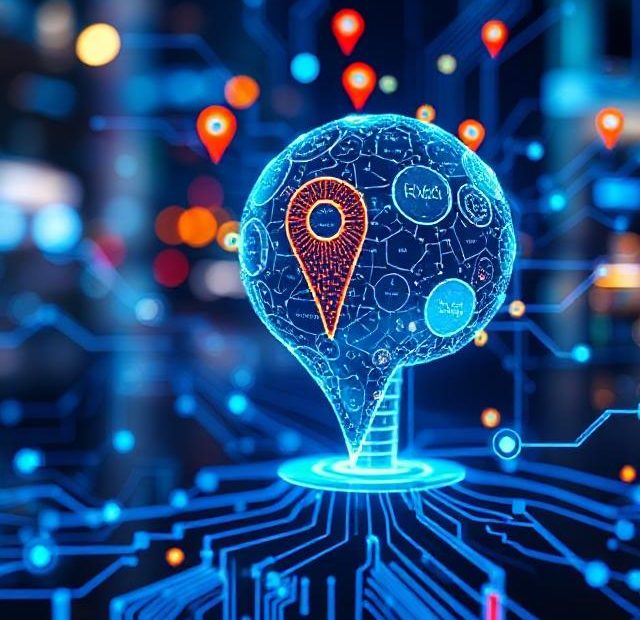In an age of accelerating digital transformation, Local SEO and AI are emerging as powerful combinations shaping the future of local search. Traditional local SEO practices are being redefined as consumers increasingly use voice assistants, AI-powered search engines, and personalized results to find nearby businesses.
Whether you’re a small business owner, local marketer, or SEO expert, staying ahead means understanding how artificial intelligence is impacting local search and what you can do to adapt and grow.
What is Local SEO?
Local SEO (Search Engine Optimization) is the practice of optimizing your online presence to attract more business from relevant local searches. These searches take place on Google and other search engines, often including terms like “near me” or the name of a city or region.
Core elements of Local SEO include:
-
Google Business Profile optimization
-
Local citations and directories
-
Customer reviews and reputation management
-
On-page SEO with local keywords
-
Mobile and voice search readiness
How AI is Transforming Local SEO
Artificial Intelligence is no longer just about robots and machine learning—it’s a core part of how search engines work. Let’s explore key ways Local SEO and AI intersect and what this means for the future.
1. Smarter Search Algorithms
AI helps Google’s algorithm better understand intent, context, and user behavior. Features like BERT (Bidirectional Encoder Representations from Transformers) and RankBrain allow search engines to go beyond keywords to interpret meaning.
For local businesses, this means simply adding city names isn’t enough—you need content that’s relevant, useful, and tailored to local user intent.
2. Personalized Local Results
AI enables search engines to deliver personalized results based on location, search history, and preferences. For example, two users searching “best coffee shop” from the same street might see different results based on their past behavior.
To stay visible, businesses must focus on creating a consistent, trustworthy online presence and maintaining high engagement metrics like click-through rates and dwell time.
3. Voice Search and Natural Language
The rise of Siri, Alexa, and Google Assistant has changed how people search. Voice searches are more conversational and often local—e.g., “Where’s the best pizza near me open now?”
To optimize for voice:
-
Use long-tail, conversational keywords
-
Add FAQ sections to your site
-
Include structured data for enhanced search results
Voice search is where Local SEO and AI truly converge to create a smarter search experience.
4. Predictive and Zero-Click Search
AI is driving a trend toward zero-click search, where users get the answer they need without clicking on a link, through featured snippets, local packs, or Google Business Profile information.
Businesses should ensure their information is complete and optimized across platforms to win in zero-click scenarios.
5. AI-Powered Tools for Marketers
AI isn’t just powering search—it’s also transforming how marketers manage Local SEO. Tools like:
-
BrightLocal for local ranking insights
-
Surfer SEO and MarketMuse for content optimization
-
ChatGPT and Jasper for AI-assisted content creation
-
Whitespark for managing citations
These platforms help businesses automate, scale, and refine their SEO strategies more efficiently than ever before.
Strategies to Stay Ahead in the AI-Driven Local SEO Landscape
To keep pace with these innovations, here are some actionable steps:
✅ Optimize Your Google Business Profile
-
Fill out every field, including categories, hours, and photos
-
Use keywords naturally in your business description
-
Encourage and respond to reviews regularly
-
Add FAQs and use chat features to engage users
✅ Focus on Quality Content with Local Relevance
-
Write blogs or landing pages around local events, news, or customer stories
-
Use schema markup to help AI understand your content
-
Incorporate user-generated content and reviews
✅ Invest in Technical SEO and Site Speed
-
Ensure your website loads quickly on mobile
-
Implement SSL and clean code
-
Use structured data to help search engines interpret your content
✅ Leverage AI Tools for Better Insights
Use AI-powered platforms to analyze competitor strategies, find content gaps, and predict future trends.
✅ Monitor Voice Search Behavior
Update keyword strategies based on how users are speaking rather than typing. Use tools like AnswerThePublic or Google Search Console for keyword discovery.
The Future: What to Expect Next
The intersection of Local SEO and AI is only going to grow more complex and powerful. Expect to see:
-
Hyper-local personalization: AI will fine-tune search results even further by analyzing micro-locations and user micro-moments.
-
AR and visual search integration: Features like Google Lens will allow users to point their camera at a store and get reviews, hours, and directions.
-
AI chatbots replacing traditional queries: Customers may begin interacting more with AI assistants than traditional search bars.
The winners in this future landscape will be businesses that are fast, informative, and deeply integrated into their local digital ecosystem.
Conclusion
Local SEO and AI are no longer separate topics—they are deeply intertwined. AI is shaping how users search, how results are delivered, and how businesses need to respond. From voice search and personalization to zero-click results and smart content optimization, the future of local search lies in adapting to AI-driven behaviors.
By understanding the shifts and implementing proactive strategies, your business can stay ahead of the curve, rank higher in local searches, and turn digital interactions into real-world customers.
Also, you can learn more about Boost Sales with GMB here.
